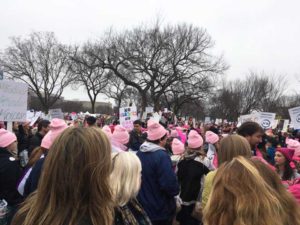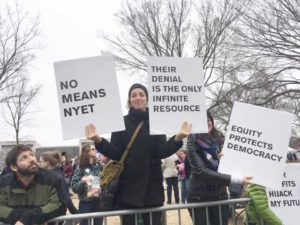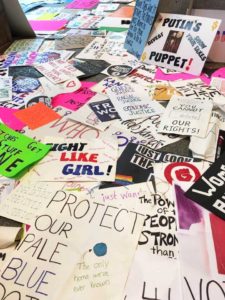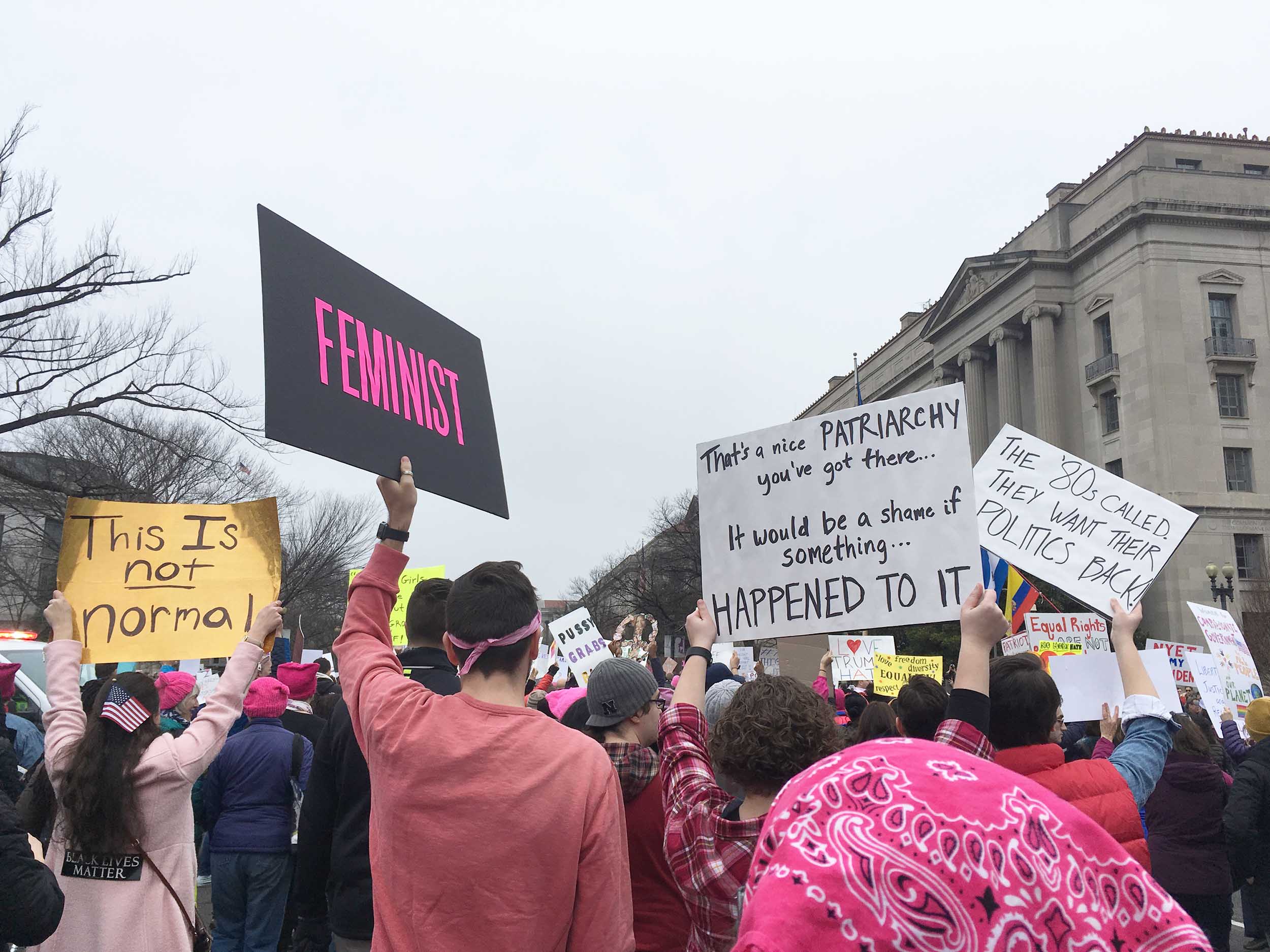The now prolific, pink-hatted demonstrators filled Washington D.C. the day after the inauguration of the forty-fifth President of the United States, Donald Trump’s, in peaceful protest.
No arrests related to the Women’s March were conducted, according to District of Columbia’s Homeland Security Director, Christopher Geldart.

The “Sister March,” as one of the names the movement became known by, had sister-demonstrations around the globe. The marches spanned all seven continents. Estimated participation was just shy of 5 million.
The organizers of the protest, Linda Sarsour, Tamika Mallory, Vanessa Wruble and Bob Bland, partnered with Planned Parenthood and featured speeches ranging from celebrities to elected officials.
Madonna, Alicia Keys, feminist icon Gloria Steinem, Senator Elizabeth Warren and many other activists addressed crowds on a wide array of social causes.
“Our liberation is bound in each other’s…We welcome vibrant collaboration and honor the legacy of the movements before us,” reads a portion of the four-page purpose document for the March.
The march had many themes. “Women’s rights are human rights” could be read on many signs; whereas other demonstrators took a more colorful approach to express their voices.
Many mirrored the infamous language used by the President in the Billy Bush recording.

The march’s theme of intersectionality and solidarity was not without criticisms or conflict. Co-chair Bob Bland told the Washington Post that, “Inclusivity isn’t just part of the march, it is the foundation of this march.”
However, pro-life group New Wave Feminists was dropped from the list of partnering organizations of the March. The Women’s March on Washington occurred one week before the annual March for Life, an anti-abortion march that garners hundreds of thousands.
The response to the Trump presidency and use of executive orders has been broad.
Although the Women’s March was peaceful, there were arrests made of some 200 inauguration protesters the day prior. This included several journalists from various news organizations.
While some journalists were released, other futures are left more uncertain.
Those detained by law enforcement have been charged with felony rioting.
Among the some 470,000 marchers in D.C. alone were those that expressed fears over the safety of LGBT rights with the Supreme Court justice opening. That opening is one that could potentially jeopardize the Roe v. Wade decision, as well.
Trump has plans to announce his pick at some point this week.
The Defense of the First Amendment Act is one bill that opponents argue jeopardizes the LGBT community by providing a legal way for discrimination to occur. The act would bar the federal government from interfering in such specific instances.
Earlier in the year, Trump that he would not take action against Marriage Equality, stating it was “done” and “settled.”

Since the march Trump has signed many other executive orders, including Reagan’s “Mexico City Policy” that bans federal funds to international groups that perform abortions or lobby to legalize or promote abortion.
Immigration activists and activists against Islamophobia raised concerns over both Trump’s proposed wall and the potential refusal of refugees under the Trump administration.
Last week, the President barred refugees from seven predominantly Muslim countries.
“We only want to admit those into our country who will support our country, and love deeply our people,” Trump stated.
Environmentalist concerns were voiced after the ban on EPA workers from posting social media updates. In response, several National Parks and even organizations like NASA have “gone rogue” and created alternative accounts to avoid silencing.
While not all of America’s reaction to the Trump presidency has been negative, the voices that have rallied in opposition draw attention to the multitude of issues Trump will be expected to consider.
Barton Kleen
Executive Editor


